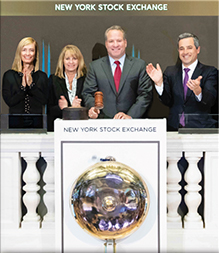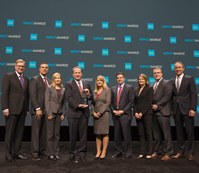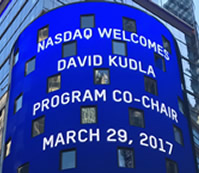(excerpt)
So you have retired, adjusted to getting a monthly pension and think you have your finances in order. Then your former employer asks if you want to trade that check for a big chunk of money.
That is what happened to 42,000 General Motors retirees on June 1.
"You think everything is all set, and now I have to go back and rethink everything," says Ray Benitez, 63 years old, who retired in 2008 as an industrial engineer after 32 years at the auto maker.
The retirees have to tell GM what they want to do by July 20. Mr. Benitez, who lives in Rochester Hills, Mich., started working through the numbers Tuesday morning with Mainstay Capital Management, an investment-advisory firm in Grand Blanc, Mich.
GM said it plans to hand over $26 billion in pension obligations for salaried retirees to Prudential Financial by buying a group annuity contract. Those who retired between Oct. 1, 1997, and Dec. 1, 2011, have the option of taking a lump-sum payment rather than receiving monthly checks, similar to a plan that Ford Motor disclosed last month.
It is a tough choice: Do retirees preserve their fixed monthly payment, even though it will lose value over time with inflation? Or do they trade in that security for a sizable nest egg on which they might make sizable returns—or suffer sizable losses?
Thousands of other retirees could face similar decisions if other employers with billions of dollars in pension assets follow Ford and GM's lead, says Rick Jones, a senior partner at Aon Hewitt, a human-resources consulting company.
Deciding whether to take the lump sum when you already have retired depends on many factors. Here are some key points to consider.
Investment risk. Collecting a lump sum puts the responsibility for generating investment returns onto the retiree. At a time of market volatility and record-low interest rates, that is a tall order.
If you rely on your pension for monthly income, you have to feel confident you can replace it on your own. If you hire a financial planner or investment adviser, you have to make sure you generate that income after their fees.
The size of the lump sum is based on what would be needed to generate the monthly income the retiree already gets for the rest of his life expectancy. The pension plan generally uses a set interest rate to determine it. ...
...One retiree born in 1945, with a wife born in 1943, is getting $5,770 a month. When he dies, his wife would get $3,883 a month. He was offered a lump sum of $849,707. ...
...Inflation risk. On the other hand, the security of the monthly check might not seem as attractive 20 years from now, when inflation could erode its buying power.
David Kudla, chief executive of Mainstay Capital, points out that the younger the retiree is, the bigger the lump-sum offer, since it has to last a longer time. For those folks, he says, a lump sum has a better chance of keeping up with rising prices—adding that rising inflation also would trigger rising interest rates, making it easier to generate returns from certificates of deposit and money-market accounts.
Age and health. The younger you are, the longer you have to make your money last. ...
...Conversely, a longer investment timeline might give you wiggle room to generate the needed returns from a lump sum—and keep up with inflation, Mr. Kudla says.
Poor health is a clear-cut argument for taking a lump sum. You might not get much value from your pension, and a lump sum would make it easier to leave assets to your family.
Family. If you are retired and your spouse is working, you could take the lump sum, invest it until you are both retired and then start taking distributions.
If your spouse already is retired and gets monthly pension payments, you might want to convert yours into a lump sum to give you a monthly payment along with an emergency account.
Lump sums are rolled into individual retirement accounts, so no income tax is owed until withdrawals are made. Delaying payments while your spouse works could help you lower your income-tax bill, too. You also might consider converting the rollover IRA incrementally to a Roth, incurring tax now so you can take out tax-free earnings later—or avoid required withdrawals.
If you would like a copy of the complete article, please send an email request to This email address is being protected from spambots. You need JavaScript enabled to view it., or call toll-free 1-866-444-6246. If sending an email request, please include the following: title and date of article, and mailing address.







